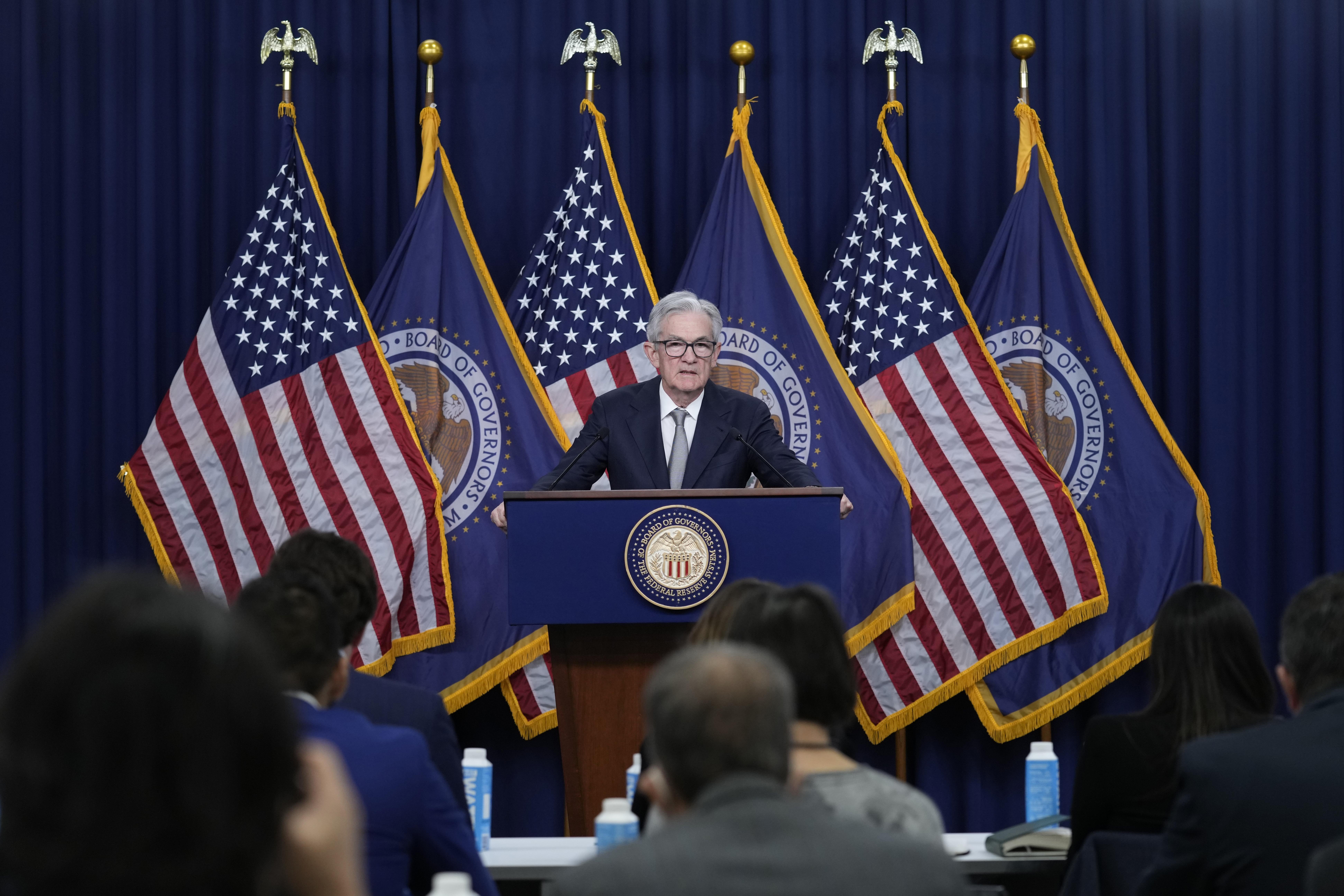 Federal Reserve Chair Jerome Powell speaks during a news conference at the Federal Reserve in Washington, Nov 1, 2023. (PHOTO/AP)
Federal Reserve Chair Jerome Powell speaks during a news conference at the Federal Reserve in Washington, Nov 1, 2023. (PHOTO/AP)
WASHINGTON - The US Federal Reserve on Wednesday left interest rates unchanged at a 22-year high of 5.25-5.5 percent, as yields on long-term US Treasury bonds have spiked in recent months.
"Recent indicators suggest that economic activity expanded at a strong pace in the third quarter. Job gains have moderated since earlier in the year but remain strong, and the unemployment rate has remained low. Inflation remains elevated," the Federal Open Market Committee (FOMC) said in a statement after concluding a two-day policy meeting.
Wednesday's decision comes as the 10-year Treasury yield has risen swiftly, by nearly one percentage point, since Fed officials last raised rates in July, recently hitting 5 percent for the first time since 2007.
"The process of getting inflation sustainably down to 2 percent has a long way to go," and recent data shows the resilience of economic growth and demand for labor keep the door open to another hike down the road, said Fed Chairman Jerome Powell
In a recent speech in New York, Fed Chairman Jerome Powell suggested that the soaring long-term Treasury yields and recent jump in borrowing costs could to a certain degree substitute for further Fed increases.
ALSO READ: Powell: Fed strives for balancing act amid high inflation
Since this year, the Fed has slowed its pace in tightening, as inflation has cooled from its peak in 2022. The Fed paused its rate hikes in June, and then raised rates by 25 basis points in July. In September's meeting, the Fed again held the benchmark rate steady.
With the latest decision, Fed officials have now skipped a rate hike for two consecutive meetings for the first time since they began to lift rates from near zero in March 2022 in an aggressive monetary tightening cycle.
"Since early last year the FOMC has tightened the stance of monetary policy rates up to 5.25 percentage points and reduced securities holdings at a brisk pace," Powell told reporters at a press conference Wednesday afternoon.
"The stance of policy is restrictive, meaning that tight policy is putting downward pressure on economic activity and inflation and the full effects of inflation have yet to be felt," said the Fed chief.
Noting that inflation has moderated since the middle of last year and readings over the summer were quite "favorable," Powell, however, said a few months of good data are "only the beginning of what it will take to build confidence that inflation is moving down sustainably toward our goal."
ALSO READ: Fed keeps rates steady, toughens monetary policy stance
Total personal consumption expenditures (PCE) prices rose 3.4 percent over the 12 months ending in September, and excluding the volatile food and energy categories, core PCE prices rose 3.7 percent -- both well above the Fed's longer-run goal of 2 percent.
"The process of getting inflation sustainably down to 2 percent has a long way to go," and recent data shows the resilience of economic growth and demand for labor keep the door open to another hike down the road, said Powell.
The central bank is also attentive to the increase in longer-term yields which have contributed to a tightening of broader financial conditions since the summer, said the Fed chief. "Persistent change in broader financial conditions can have implications for the path of monetary policy," he said.


